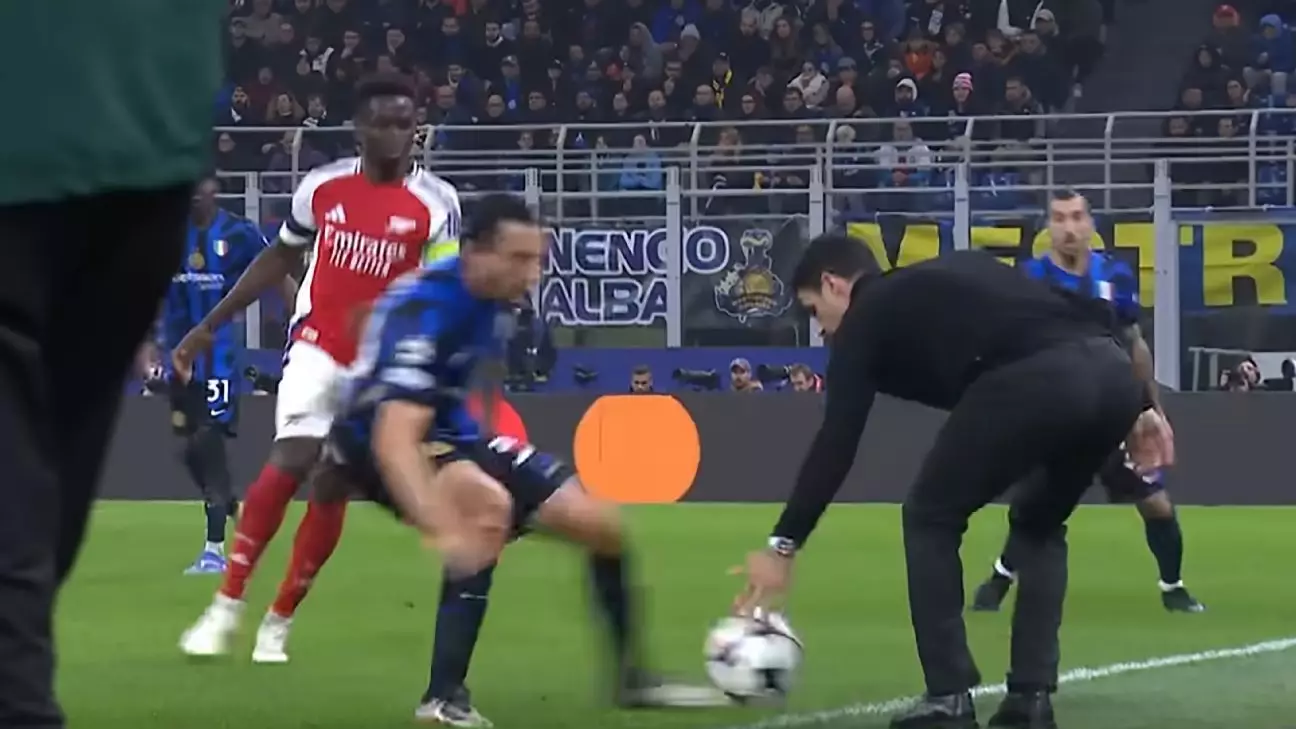The International Football Association Board (IFAB) is on the brink of revising existing rules governing coach conduct during live matches, especially regarding their interaction with the ball in play. This decision stems from a controversial incident involving Arsenal’s manager Mikel Arteta during Champions League play against Inter Milan. As the game became increasingly tense, Arteta prematurely intervened by picking up the ball, which had not yet crossed the boundary for a throw-in. This action sparked debate among officials, as match referee Istvan Kovacs opted for a yellow card rather than the required red card, highlighting flaws in existing regulations.
The recent oversight in Arteta’s case wasn’t an isolated incident. In fact, other managers like Carlos Corberán of West Bromwich Albion and Derek McInnes of Kilmarnock found themselves penalized under similar circumstances, showcasing a pattern that lacked consistency in officiating. The discrepancies in how referees handled these situations pointed to a broader issue within match regulations. Recognizing the need for clarity, the IFAB convened its Annual Business Meeting. It was here that discussions surrounding these incidents crystallized into actionable recommendations for rule modifications.
The Proposed Amendments
The IFAB’s recommendation revolves around providing a more lenient response to coaches who intervene purposely to facilitate quicker game restarts. In the cases of Arteta, Corberán, and McInnes, their intentions were deemed not malicious but rather focused on accelerating play. Going forward, the proposed law change will likely result in a mere caution for such instances, promoting an environment where coaches can act without fear of severe repercussions for minor infringements. This change represents a paradigm shift in the regulatory landscape, encouraging a more fluid dynamic on the sidelines while still maintaining game integrity.
Apart from the impending adjustments concerning coach interference, discussions also highlighted the approach to dropped balls. In its current formulation, the rule favors the team in possession when a pass inadvertently interacts with the referee. However, a debated new proposal suggests a more equitable approach. Should a pass clearly misfire and favor the opposing side, the dropped ball would be awarded to that team, ensuring fairness and encouraging skillful play.
The anticipated amendments reflect an ongoing evolution in the governance of football regulations, aiming for a balance between maintaining game flow and ensuring regulations are upheld. With the looming approval from IFAB’s AGM on March 1, football is poised for a transformative phase that could reshape how coaches interact during matches. This initiative not only addresses specific past grievances but also aims to foster a progressive atmosphere within the sport, where decisions are rooted in a clearer understanding of intent and fairness. Ultimately, these changes reveal an adaptive governing body prepared to refine the beautiful game for players, coaches, and fans alike.

